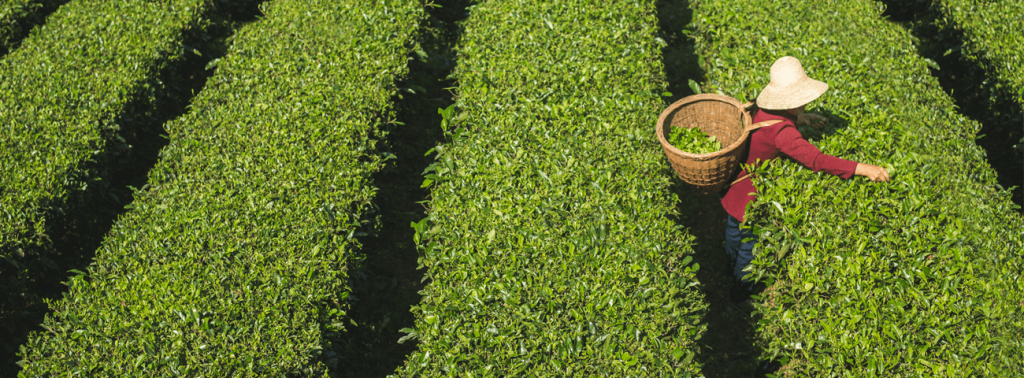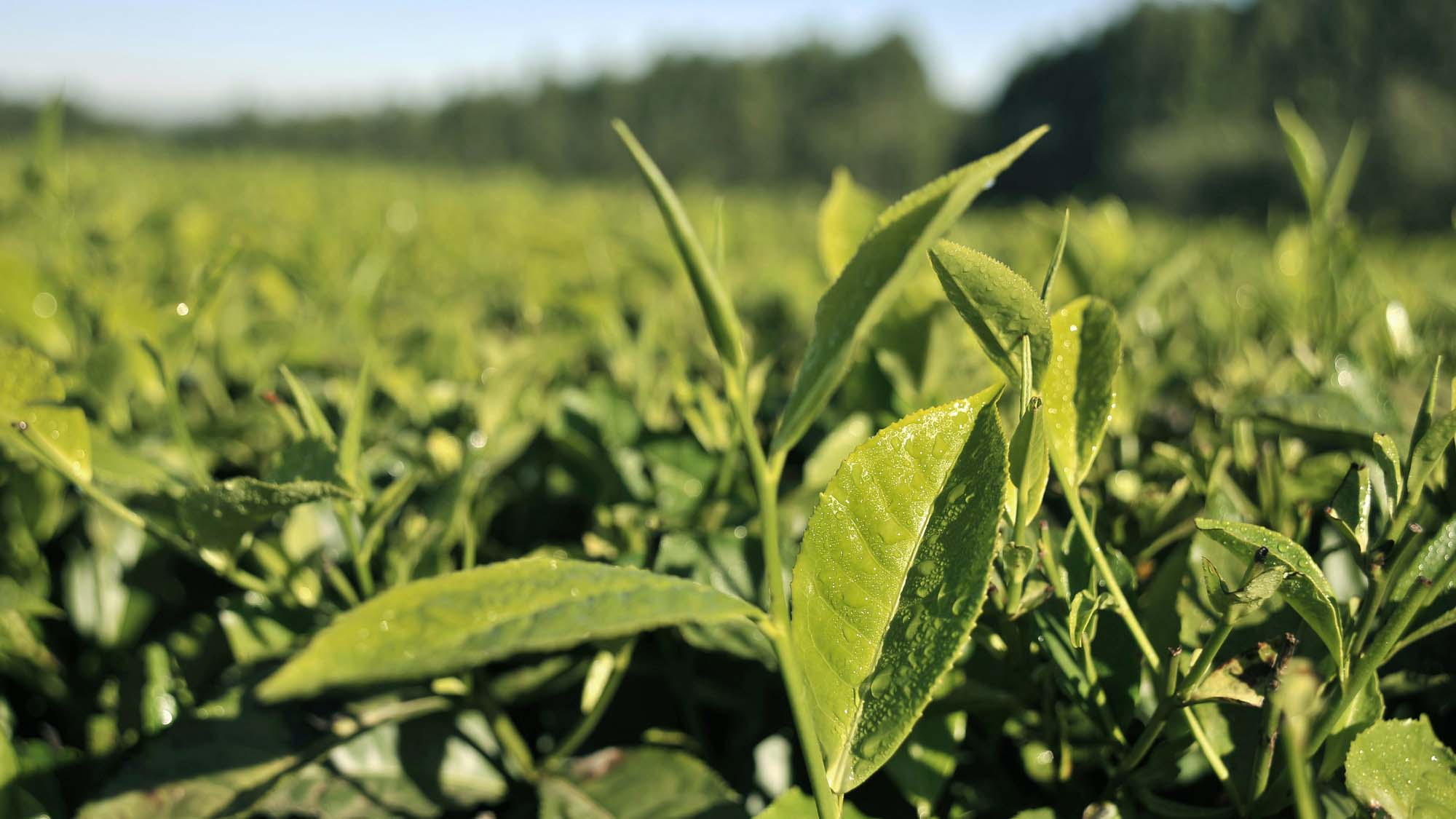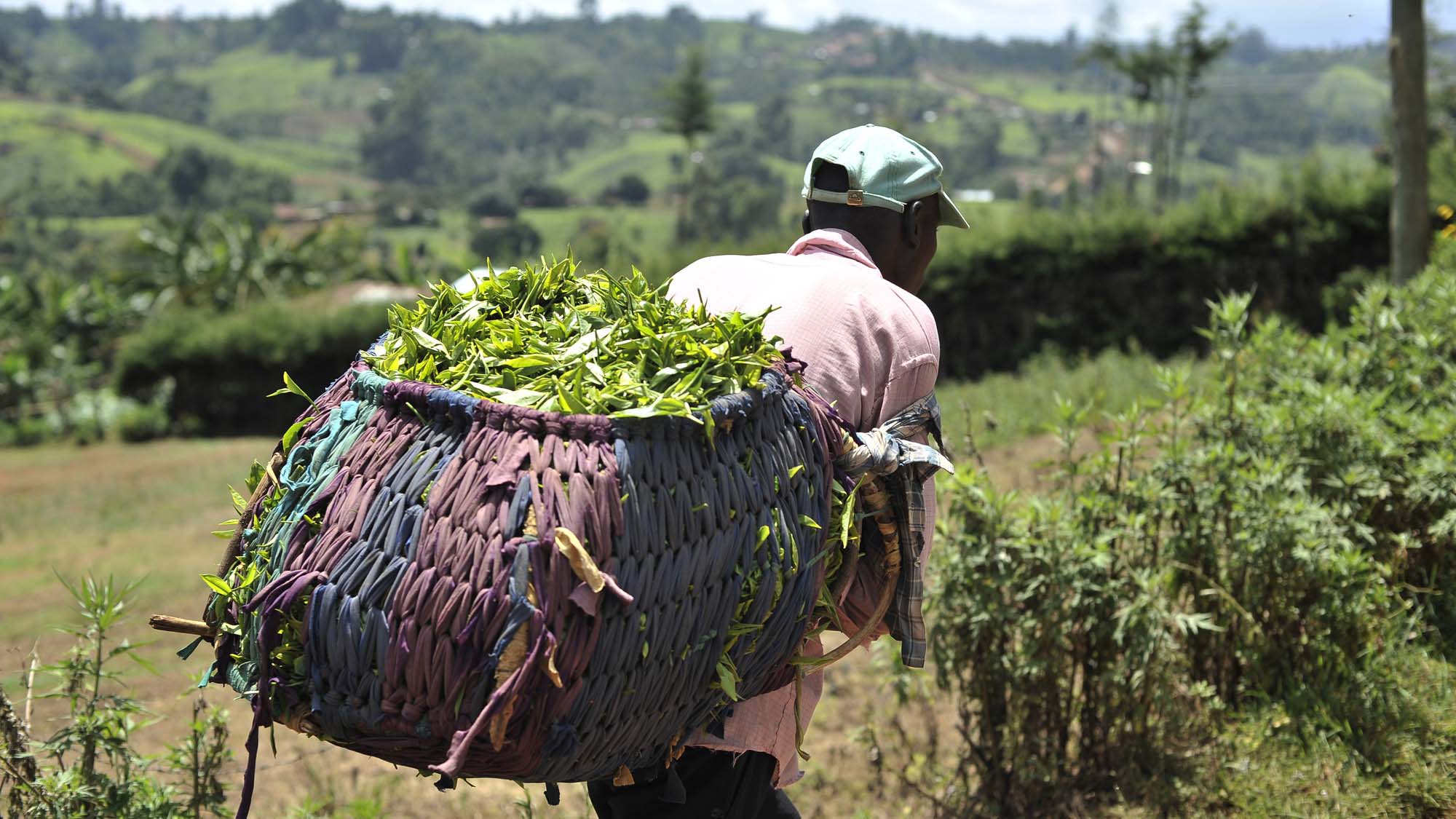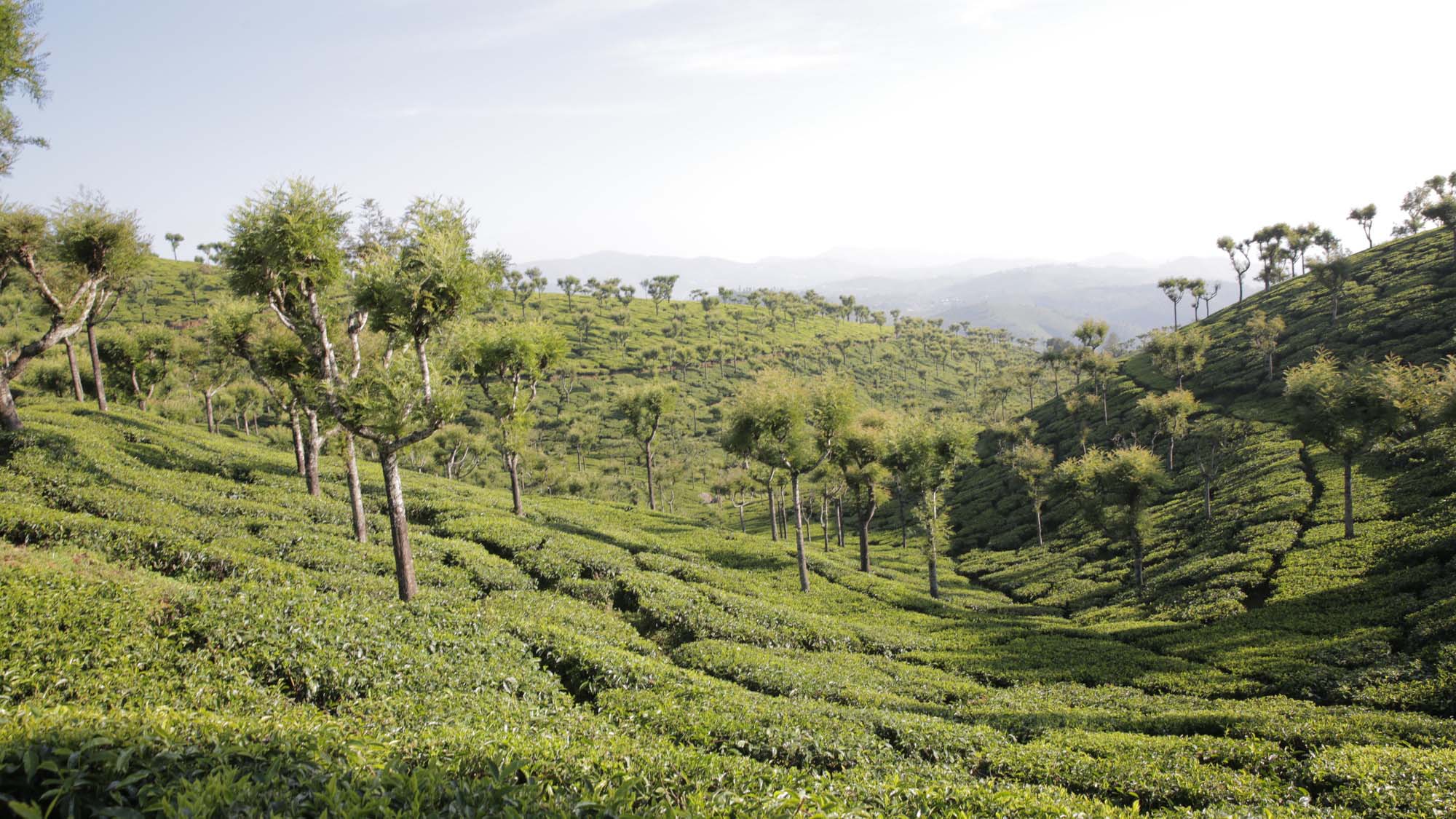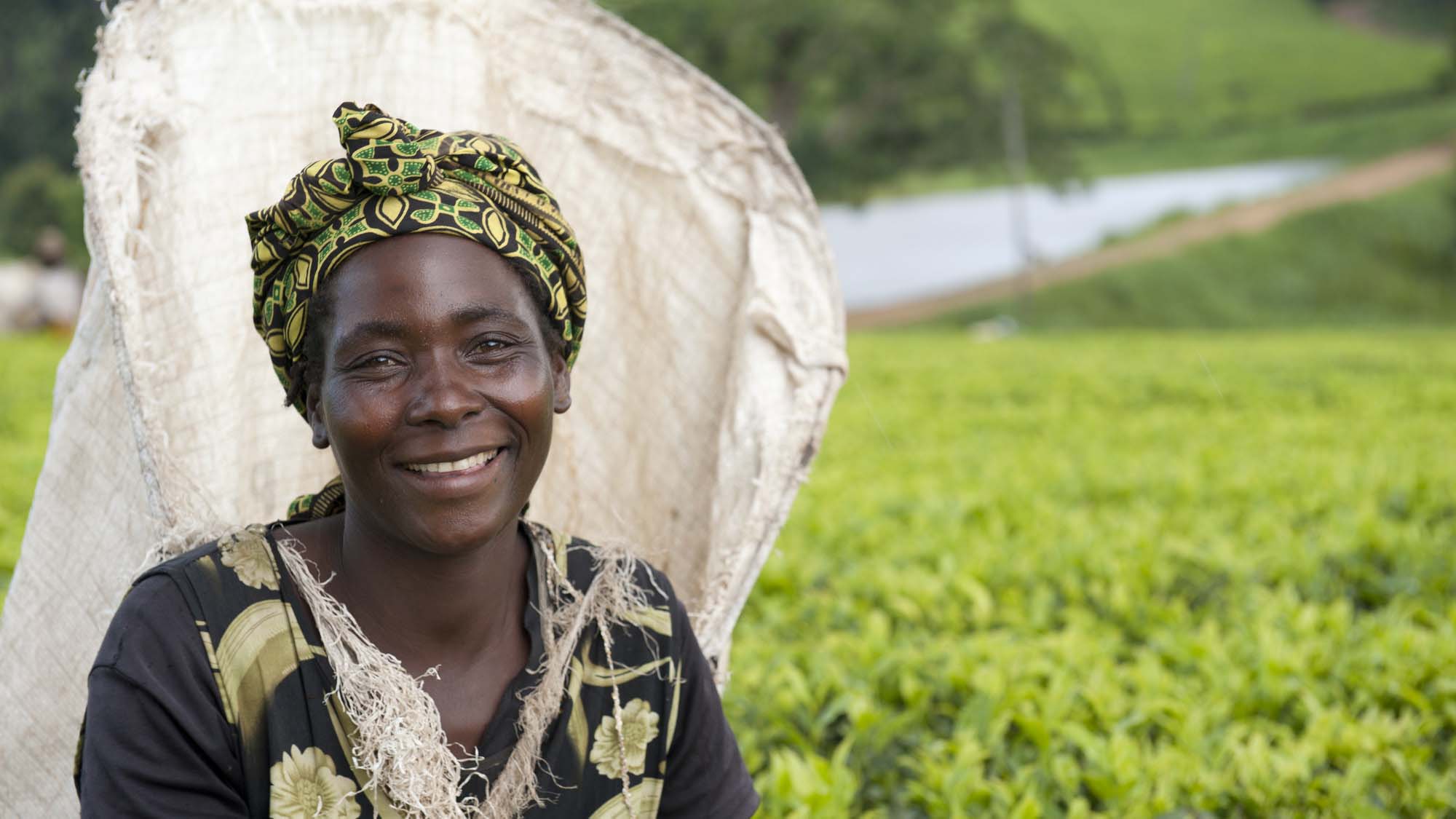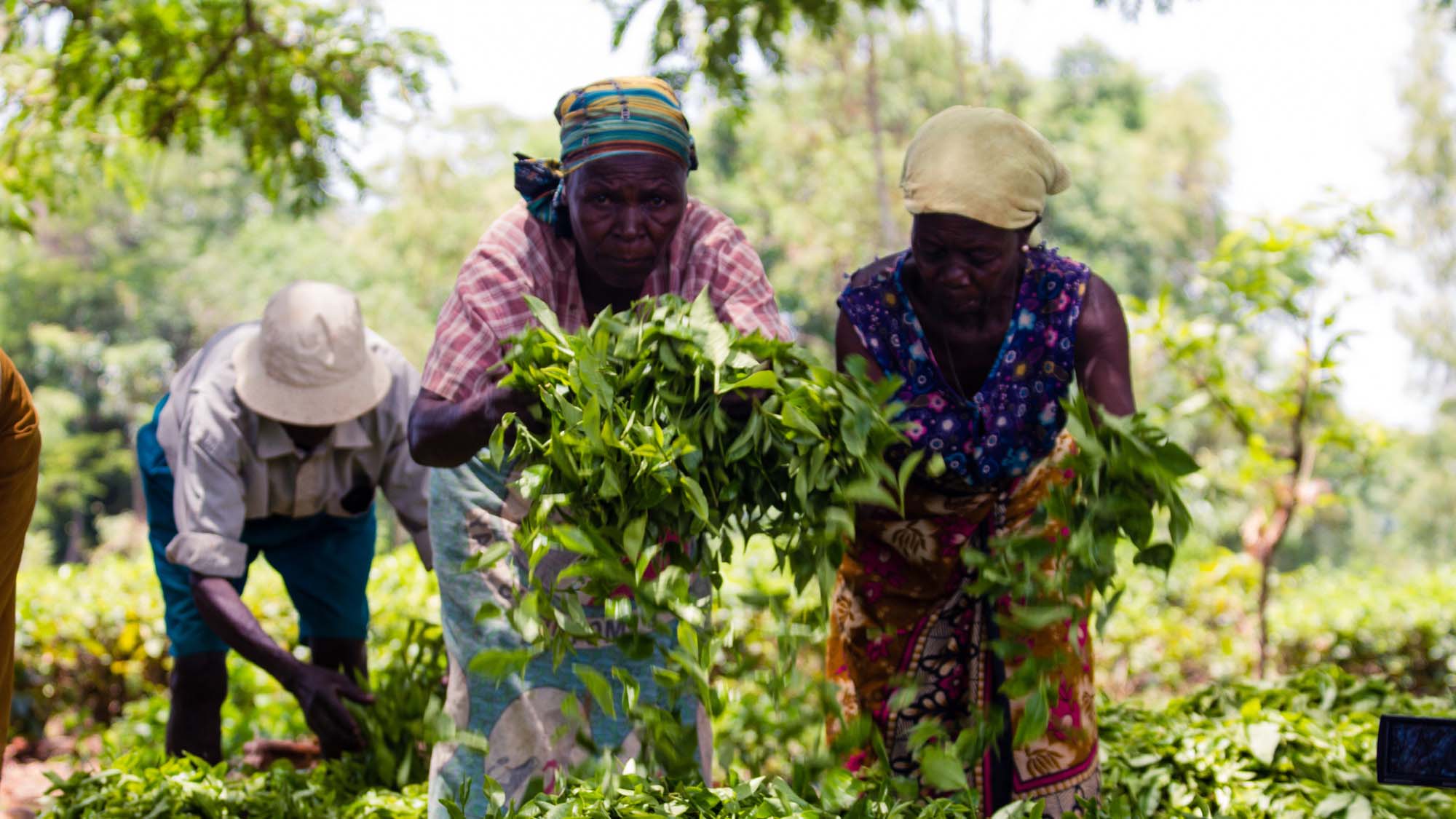Tea is the most popular drink in the world after water – an estimated 70,000 cups are drunk every second. Yet tea farmers and workers struggle to get a fair deal. This can have a very real and human cost.
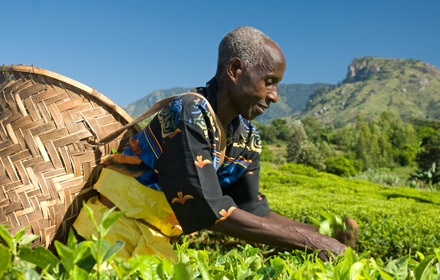
One in four children in Kenya’s tea and coffee-growing regions are malnourished, leading to stunted growth. One in 10 children in the tea-growing regions of Malawi die before their fifth birthday.
Tea is produced on large plantations or estates and picked by employed workers. It is also grown on small plots of land by small-scale farmers who sell their freshly-plucked green leaf to plantations or tea factories for processing into black tea.
In Africa, the average small-scale farmer’s farm is less than half the size of a football pitch. Tea farmers face the challenge of low and fluctuating prices for the green leaf they sell, and a lack of power in a tea supply chain dominated by large companies.
On tea estates, the challenges for workers vary depending on the origin. Workers may face low wages, long working hours and a difficult relationship with estate management. Often it is the management they depend on for basic needs such as housing, healthcare, access to water and even education for their children.
How can Fairtrade make things better?
Both small farmer organisations owned and governed by the farmers themselves and tea plantations that comply with strict Fairtrade Standards for hired labour can become Fairtrade certified. Fairtrade Standards for tea include an origin-specific Fairtrade Minimum Price, which acts as a safety net against the unpredictable market. Standards also include payment of the additional Fairtrade Premium of US$ 0.50/kg black tea, for producers to invest as they see fit. Examples include putting resources into better farming so they can earn more money for their crops, or it could be for education, clean water and clinics for the community.
Over 390,400 farmers and workers across 12 countries are involved in Fairtrade tea production. Over 8,300 tonnes of tea was sold as Fairtrade in 2020. This means certified farmers and workers earned £3.9 million in Fairtrade Premium in 2020.
On plantations, workers invest over 80% of their Premium in services for workers and their families and almost 11% in community services such as housing, education and healthcare. However, Fairtrade certified organisations sell only around 7 percent of their tea on Fairtrade terms – this means they don’t benefit from being certified to the extent that they could.
When UK shoppers choose Fairtrade tea, tea producers sell more of their product on Fairtrade terms, and can work towards a more sustainable livelihood for themselves and their families.
Read more about why tea growers, workers and pickers need support and what Fairtrade is doing to make a difference.
Read more about Fairtrade Premium
Where to buy Fairtrade tea
When you buy Fairtrade tea, farmers and workers can bring greater security, equality and opportunity to the lives of their families and communities – and that’s just for starters.
Find out where to buy Fairtrade Tea
Our tea
Bernard Ranaweera – SOFA, Sri Lanka
Bernard Ranaweera is the President of the Small Organic Farmers’ Association located in Sri Lanka.
Fintea Growers Co-operative Union Ltd, Kenya
Fintea Growers Co-operative Union Ltd (Fintea) is a union of five tea co-operatives.
Iriaini Tea Factory Ltd, Kenya
Iriaini was Fairtrade certified in October 2006. It currently sells around 60 tonnes of tea or 2% of production to the Fairtrade market.
Mr GB Henriksen – UNTE, India
Mr Henriksen has been employed by The United Nilgiri Tea Estates Co Ltd (UNTE) for 18 years.
Satemwa Tea Estates Ltd, Malawi
Satemwa Tea Estate is located in the Shire Highlands of southern Malawi. Tea is a major employer and earner of foreign exchange for the Malawian economy.
Sukambizi Association Trust, Malawi
Sukambizi Association Trust (SAT) is an organisation of small-scale tea producers located in the Mount Mulanje area of southern Malawi.
